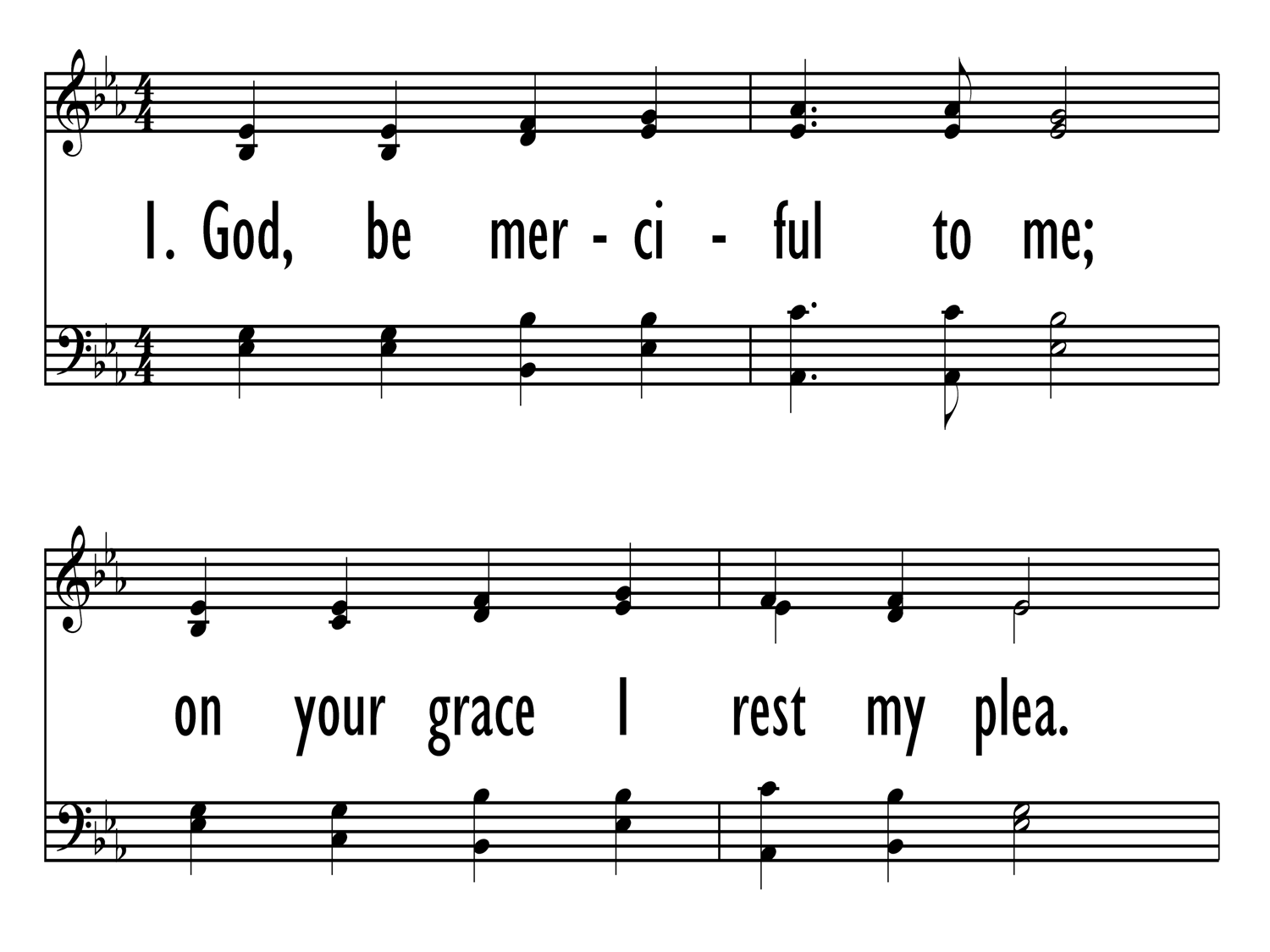1. God, be merciful to me;
On thy grace I rest my plea;
Plenteous in compassion thou,
Blot out my transgressions now;
Wash me, make me pure within;
Cleanse, oh, cleanse me from my sin.
2. My transgressions I confess;
Grief and guilt my soul oppress;
I have sinned against thy grace
And provoked thee to thy face;
I confess thy judgment just;
Speechless, I thy mercy trust.
3. I am wretched, born in sin;
Thou desirest truth within;
Thou alone my Savior art;
Teach thy wisdom to my heart;
Make me pure, thy grace bestow,
Wash me whiter than the snow.
4. Broken, humbled to the dust,
By thy wrath and judgment just,
Let my contrite heart rejoice
And in gladness hear thy voice;
From my sins, O hide thy face;
Blot them out in boundless grace.
5. Gracious God, my heart renew,
Make my spirit right and true
Cast me not away from thee,
Let thy Spirit dwell in me;
Thy salvation’s joy impart;
Steadfast make my willing heart.
6. Sinners then shall learn from me
And return, O God, to thee;
Savior, all my guilt remove,
And my tongue shall sing thy love;
Touch my silent lips, O Lord,
And my mouth shall praise accord.
7. Not the formal sacrifice
Hath acceptance in thine eyes;
Broken hearts are in thy sight,
More than sacrificial rite;
Contrite spirit, pleading cries,
Thou, O God, will not despise.
8. Prosper Zion in thy grace
And her broken walls replace;
Then our righteous sacrifice
Shall delight thy holy eyes;
Free-will offerings, gladly made,
On thy altar shall be made.
Source: Hymns and Devotions for Daily Worship #83


 My Starred Hymns
My Starred Hymns






